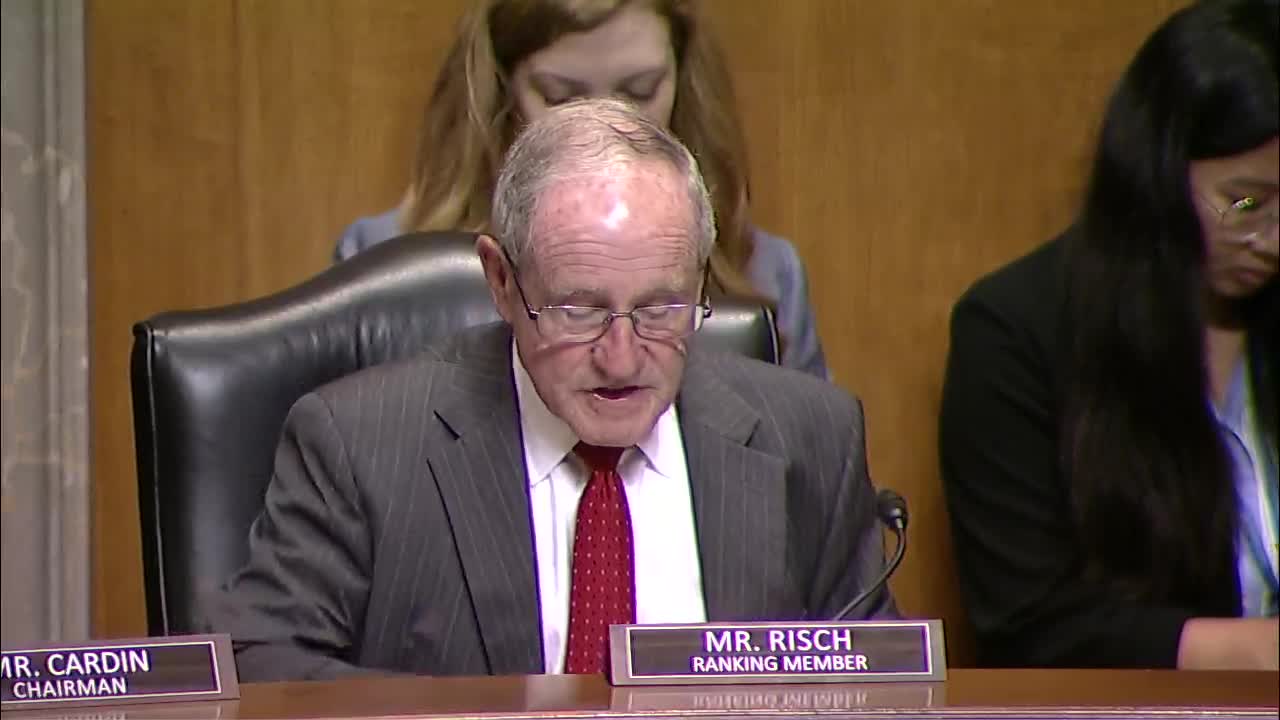Global Crackdown on NGOs Threatens Democracy and Human Rights
September 12, 2024 | Foreign Relations: Senate Committee, Standing Committees - House & Senate, Congressional Hearings Compilation
This article was created by AI summarizing key points discussed. AI makes mistakes, so for full details and context, please refer to the video of the full meeting. Please report any errors so we can fix them. Report an error »

In a recent government meeting, lawmakers expressed deep concerns over the increasing use of anti-NGO laws by authoritarian regimes worldwide to suppress civil society and silence dissent. These laws, often framed as measures against foreign influence, are seen as tools for consolidating power and restricting freedoms, particularly in countries like Russia, China, and several nations in Africa.
Senators highlighted the troubling trend of governments employing legal frameworks to criminalize the activities of watchdog organizations and human rights advocates. This tactic, referred to as \"lawfare,\" has been notably effective in countries such as Azerbaijan, Belarus, and Hungary, where legislation has been introduced to limit the operations of NGOs and restrict foreign funding. The meeting underscored the implications of these actions for democratic values and international relations, particularly in the context of U.S. interests.
Georgia was specifically mentioned as a focal point of concern, with lawmakers noting that recent legislative moves to restrict NGO activities could jeopardize the country's aspirations for EU membership. The U.S. has paused assistance to Georgia in light of these developments, reflecting a broader strategy to reassess support for nations that undermine democratic principles.
The meeting also addressed the situation in China, where the government views foreign NGOs as threats to national security. The implementation of stringent anti-NGO laws has severely curtailed the ability of civil society to operate, with reports of human rights abuses against advocates and dissidents. The situation in Hong Kong was highlighted, where a national security law has been used to stifle political dissent and persecute activists.
Lawmakers called for a more robust U.S. response to these global challenges, emphasizing the need to advocate for the rights of those affected by oppressive regimes. The meeting concluded with a commitment to further explore strategies to support civil society and uphold democratic values in the face of growing authoritarianism.
Senators highlighted the troubling trend of governments employing legal frameworks to criminalize the activities of watchdog organizations and human rights advocates. This tactic, referred to as \"lawfare,\" has been notably effective in countries such as Azerbaijan, Belarus, and Hungary, where legislation has been introduced to limit the operations of NGOs and restrict foreign funding. The meeting underscored the implications of these actions for democratic values and international relations, particularly in the context of U.S. interests.
Georgia was specifically mentioned as a focal point of concern, with lawmakers noting that recent legislative moves to restrict NGO activities could jeopardize the country's aspirations for EU membership. The U.S. has paused assistance to Georgia in light of these developments, reflecting a broader strategy to reassess support for nations that undermine democratic principles.
The meeting also addressed the situation in China, where the government views foreign NGOs as threats to national security. The implementation of stringent anti-NGO laws has severely curtailed the ability of civil society to operate, with reports of human rights abuses against advocates and dissidents. The situation in Hong Kong was highlighted, where a national security law has been used to stifle political dissent and persecute activists.
Lawmakers called for a more robust U.S. response to these global challenges, emphasizing the need to advocate for the rights of those affected by oppressive regimes. The meeting concluded with a commitment to further explore strategies to support civil society and uphold democratic values in the face of growing authoritarianism.
View full meeting
This article is based on a recent meeting—watch the full video and explore the complete transcript for deeper insights into the discussion.
View full meeting